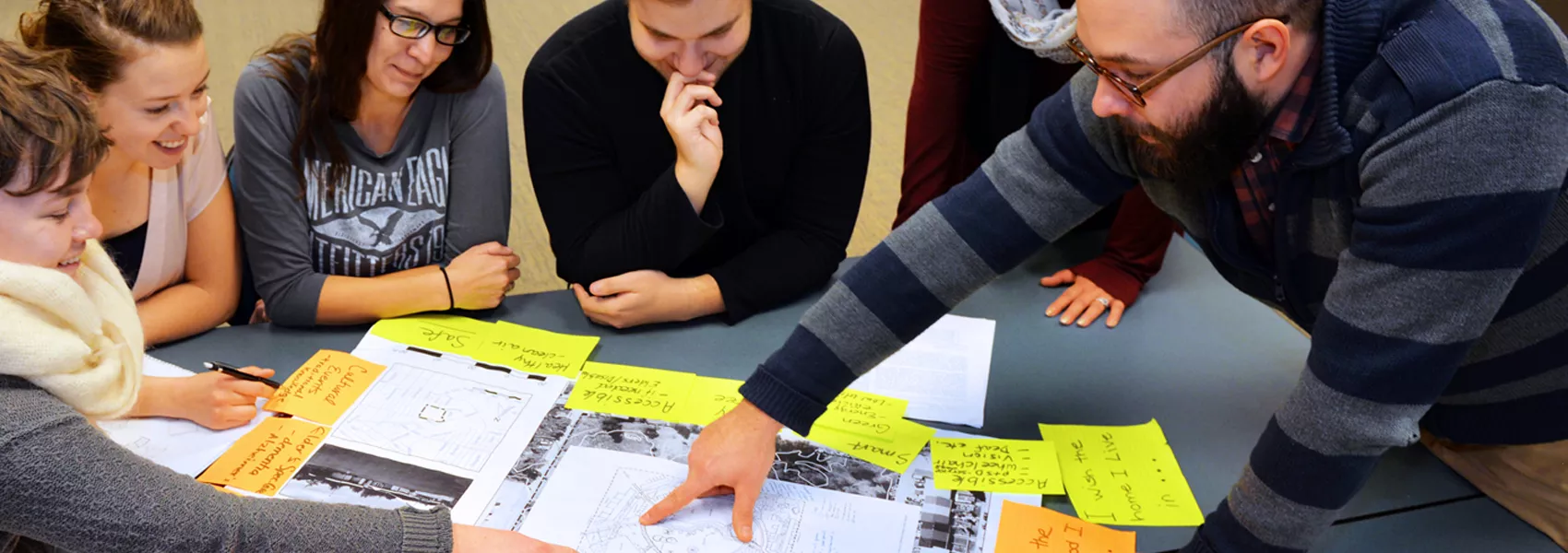
First Nations Planning
Qualified planners are highly sought by First Nations communities to help improve the livelihoods of the people who live there through sound economic development and skilled land management.
Develop your understanding of specific knowledge and abilities to be a reliable planner or consultant for First Nations communities.
120 credits, 4 Years,
Part-time available
Program Details
Opportunities for skilled planners increase as many First Nations move to define land claims in Canada, potentially giving First Nations significant responsibilities for land and community planning. However, planning by and with First Nations requires planners to have specific skills and abilities, whether or not they themselves are Indigenous.
Begin by gaining foundational knowledge in planning, Canada’s Indigenous peoples, ecology and economics. Learn about geographic information systems, earth sciences and Canadian government and politics. In the upper years, learn about Indigenous environmental philosophy as well as law and Indigenous peoples.
Through applied classes and projects, gain knowledge and practice skills to help First Nations communities articulate and implement meaningful community projects in infrastructure, housing and resource management.
Career Paths
- Registered Professional Planner
- Planner for a First Nations community
- First Nations land manager
- Project manager
- Planning consultant
Why at UNBC
- Fast track your career as a Registered Professional Planner by earning a degree from British Columbia’s first accredited undergraduate planning program
- Develop an understanding of the protocols, history, social structure and ecology of Indigenous people in Canada
- Learn cross-cultural translation skills, community participation techniques and gain a solid grounding in ethics
- Enhance practical skills by completing one or more internships and engaging in applied, skills-based learning
- Under certain circumstances, work on a real-world planning project with a First Nations community in a workshop-style, field-based course
- Learn how to be a professional who can see the big picture, and who can work collaboratively to bring together people with the different forms of expertise and knowledge needed to create and realize that picture
'En Cha Huná
UNBC’s motto, from the Dakelh (Carrier) Elders, reminds us that all people have a voice and a viewpoint. Interpreted as “respecting all forms of life,” 'En Cha Huná encapsulates the spirit of academic freedom, respect for others, and willingness to recognize different perspectives.
Subscribe for updates
Receive personalized emails about your programs of interest, scholarships, application dates and more!
Admission Requirements
High School Requirements (applicable for B.C. and Yukon)
Overall average of 65% minimum in the following:
- English Studies 12 or English First Peoples 12
- Approved Academic Grade 12 Course
- Approved Academic Grade 12 Course
- Approved Academic Grade 12 Course
- Additional Grade 12 Course (Elective or Academic)
Domestic Admission Requirements
View the full list of Approved Academic Grade 12 Courses
More high school admission requirements (including out-of-province, International Baccalaureate and Advanced Placement)
Transfer Requirements
- Have attempted at least 15 credit hours of post-secondary transferrable coursework from a recognized institution
- Be in good academic standing at the transfer institution
- Have a 2.0 GPA from the most recent 30 credits prior to transfer
- For the purposes of verifying any outstanding first-year prerequisites, high school transcripts may be requested
International Admission Requirements
International Student Requirements
- Meet UNBC's English language requirements
- Meet the international admission requirements by country or meet the admission with a General Certificate of Education (or equivalent)
- Complete the required high school course equivalencies outlined in the Domestic tab prior.
Transfer Requirements
- Have attempted at least 15 credit hours of post-secondary transferrable coursework from a recognized institution
- Be in good academic standing at the transfer institution
- Have a 2.0 GPA from the most recent 30 credits prior to transfer
- For the purposes of verifying any outstanding first-year prerequisites, high school transcripts may be requested
Tuition and Fees
(30 credit hours, 10 courses)
| Domestic | International | |
|---|---|---|
| Tuition* | $5,870 | $24,770 |
| Student Fees* | $1,185 | $1,185 |
| Books* | $1,700 | $1,700 |
* Tuition, fees and books are subject to change and vary among programs.
Scholarships, Bursaries and Awards
View the hundreds of available scholarships, bursaries, and awards.
- 1 in 4 students receive a UNBC financial award.
- $3,500,000 in financial awards given each year.